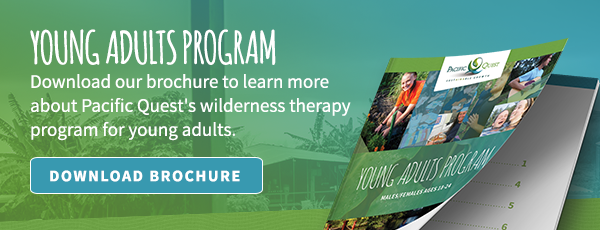January is National Mentoring Month—does your college student have a mentor?
According to a report compiled by the Institute for Higher Education Policy, both undergraduate and graduate students alike report mentoring as having helped them develop the proper skills and mindset necessary to succeed professionally.
“Ultimately, mentoring connects a young person to personal growth and development, and social and economic opportunity,” states The National Mentoring Partnership website. It’s true—Mentor-mentee relationships help not only in the educational sphere, but in daily life and a future career as well. Learn more about the positive effects of mentoring, and how to find the right one for your child.
What Type of Mentor?
Both informal and formal mentoring relationships can be of benefit to a college student. The differences between the two are subtle, but one option may be better for your child than the other.
Informal Mentoring:
- Naturally occurring
- Provision of general guidance and support
- Promotes students’ sense of well-being by challenging the negative opinions they may have of themselves
- Can be short- or long-term
- More common than formal mentoring
Formal Mentoring:
- Structured and intentional approach
- Often facilitated by an agency or program
- Mentoring takes place at specific place and time
- Strong emphasis on positive youth development
- Can be school-based, community-based or even workplace-based
- Can include specific programs, such as wilderness therapy
Education
When students begin their college journey, it can often be a tumultuous time; college is full of new experiences and uncertainty that can potentially lead to larger behavioral problems. Mentoring has been proven to impact a few early warning signs that a student may be getting de-railed, including:
- Regularly Missing Class: Students who participate on a regular basis in a mentor relationship are 52 percent less likely to ditch a full day of school than their peers, and 37 percent less likely to skip a class, according to the Public/Private Ventures Study of Big Brothers Big Sisters.
- Recurring Behavioral Issues: Mentored students are proven to maintain healthier, more positive attitudes toward schooling in general, according to 2013 The Role of Risk report.
- Failure to Launch Scenarios: Mentoring, and programs specifically integrated with mentorship roles like Wilderness Therapy, can help students learn lifelong coping skills.
Career
Many students feel high school curriculum doesn’t adequately prepare them for college, and many college students feel college courses don’t properly prepare them for the real world and a successful career. Oftentimes it is said internships are the best path to getting acquainted with the profession they seek, and mentors can help guide students in the right direction by teaching networking skills and their own valuable connections. They can also help students set career goals, practice interviewing skills and introduce them to other organizations or resources they may know of.
Daily Life
Navigating the daily struggles of college life can be overwhelming for some. If you’re not always available as a parent to help ease the stress of this transition, it may be time to consider finding a mentor or wilderness therapy program for your young adult. Sometimes young adults simply begin going down the wrong path because they are uncertain as to where to go—needing a guide to promote positive social attitudes and communication. The strongest benefit from mentoring, according to The Role of Risk report, is a reduction in depressive symptoms. Find help for your young son or daughter early, so they can blossom into the adult you know they can be.
